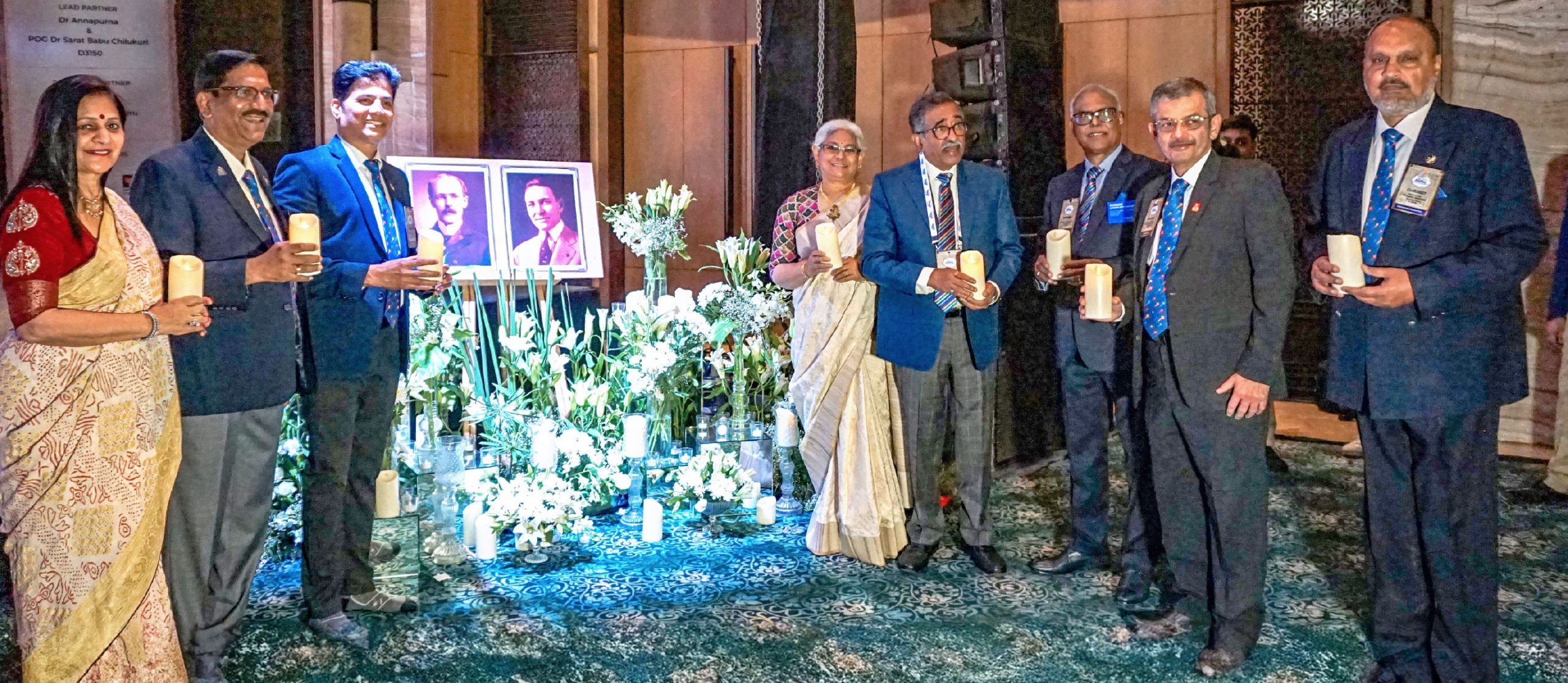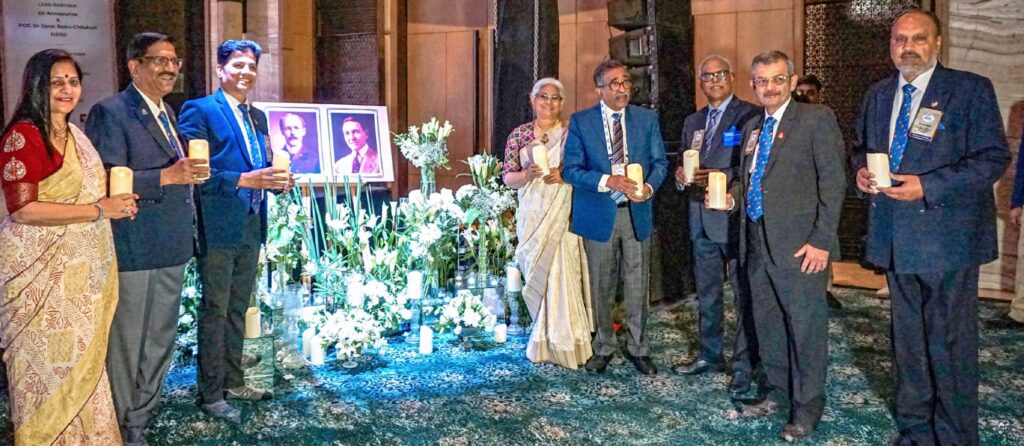
No forming phantom clubs and no more tarnishing India’s image through election disputes,” said RI director and convener Raju Subramanian at the training and goal-setting meet, Disha, held in Delhi. Highlighting the numerous election-related complaints being sent to RI, he noted that despite doing so well in membership and being No 2 in Foundation-giving, “we are ruining our image globally. Our dirty politics is putting off new members. Sort out your issues within your district and do not escalate it to the RI headquarters.” To discourage phantom clubs being formed for boosting votes, he explained that a pilot project is in place for the coming year which requires the DG, DGE and DGN to jointly sign the club membership form for formation of new clubs.
Frowning upon groupism and favouritism, the RI director said: “As a DRFC, you must not refuse to sign for the Polio Fund when there is excess fund in your DDF, or the grant form just because you want the grant to go to the next year’s governor who may be your favourite. It is irrelevant which group you are a part of. This is not ethical for our organisation. Do not discriminate. Posts are not for positions but meant to move our organisation forward.”
Disha this year focused on recognising and implementing the Action Plan, and setting the ‘three-year rolling goals’, with the involvement of DGEs, DGNs and the DGNDs, to ensure better bonding and continuity among the district’s leadership for the next three years. “The aim is to work together as a team so that we can achieve much more than working alone as individuals,” he said. Prior to the event, five-year data on membership and Foundation-giving was shared with the incoming governors and coordinators for them to work out their goals for the next three years ending June 2027.
“It is a sustainable goal; we are on track to achieve it,” said Subramanian, and noted that “this annual feature of fixing goals is unique to our part of the world. Many countries may not be even aware that we have a programme like this every year where the DGEs meet with their DRFCs, DPICs and DRCs and set targets together.”
Speaking on the topic Magic of Rotary, RI director Anirudha Roychowdhury said, “Let’s prioritise initiatives that promote peace. Rotary’s magic lies in communities thriving in harmony, and its enduring strength lies in balancing continuity and change. Let’s take pride in Rotary’s legacy while we embrace change and continue what we do best — doing good in the world.”

TRF trustee vice-chair Bharat Pandya listed ten priorities of the Foundation with polio eradication topping the list. “We are closer than ever before in ending polio from the world. But there is so much lethargy among Rotarians for contributing to the Polio Fund which is the backbone to continue prevention activities in the polio-endemic countries. The Polio Fund helps in attracting twice our contribution from the Gates Foundation. But if we go down on our funds, the world may see a surge in polio again,” he warned.
The other priorities he mentioned included promoting peace through the Peace Fellows programme and supporting Rotary Peace Centres, Programs of Scale, developing partnerships, promoting the Paul Harris Society, grants, Annual and Endowment Funds, and stewardship. He urged the Foundation coordinators to focus on CSR India grants, and increase the number of donors to TRF to 20 per cent. “Only six Indian districts are 100 per cent giving clubs and we have to work on getting more Rotary clubs to participate,” he said.
Pandya urged the delegates to help achieve the target of $2.025 billion for the Endowment Fund by 2025 — $1 billion in actual contribution and $1.025 billion in commitments. “Imagine the power TRF will have when we have $1 billion actual contribution. The spendable earnings every year then will be at least $50 million and we can do, not one, but five Programs of Scale.” He said that as of March 2024 TRF has received a combined total of $1.651 billion in the Endowment Fund; “we are short by $374 million from our goal.”

He suggested to the district leaders to bring back focus to Project Positive Health that was launched in 2019. “Today sugar and salt are killing people more than war and terrorism,” he said. Sixty per cent Indians die of lifestyle diseases such as diabetes, kidney or heart diseases and this can be overcome by regularly checking parameters related to blood sugar, BP and body-mass index. “There is nothing called ‘sudden’ heart attack; it requires years of preparation. NCDs are silent killers,” he observed and encouraged the district leaders to plan health camps and awareness programmes in their region.
PRID A S Venkatesh, speaking on diversity, equity and inclusion, said that DEI does not stop with addressing gender equity. “You have to be inclusive in all aspects without being discriminating. Your club should be accessible to a disabled or an aged person, and comfortable for all members. It should reflect the diversity of its community. Gender equity must be reflected in leadership positions, committees and in our clubs. Tune your mindset to include women at all levels.”
DearMamma, an app to educate women on breast cancer and manage breast health was introduced at the meet. The app guides the user through self-examination and helps set reminders. It is a project of The Dear Foundation, Switzerland.
PDG Sharat Jain organised the event as its chair; and PDG Gurjeet Sekhon was the event secretary.
Pictures by Jaishree






